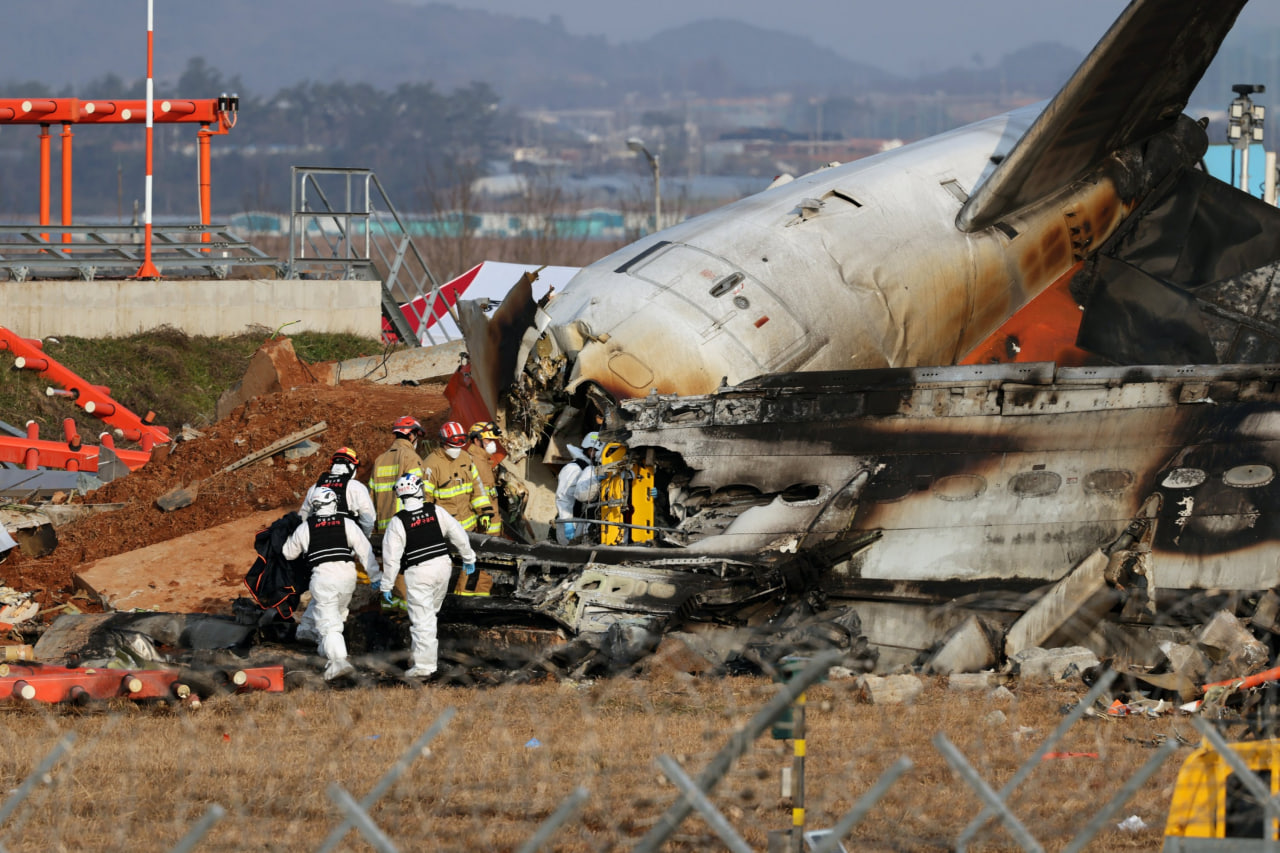South Korea’s rescue service reported that a Jeju Air Boeing 737-800 crashed on December 29, killing 179 passengers. Only two crew members survived the accident, with one sustaining serious injuries, Yonhap News Agency stated.

The plane, which was en route from Bangkok to Muan, crashed while attempting to land at its destination. There were 181 individuals onboard. Preliminary investigations suggest that the aircraft ran off the runway, collided with a concrete barrier, and caught fire.
Experts are also examining the possibility of a bird strike as a contributing factor. This may have caused a failure of the front landing gear. Reports indicate that the crew circled the airport before landing to visually inspect the damage.
Despite challenges posed by the intense fire and extensive destruction, emergency responders reached the site promptly. South Korea's interim president declared a seven-day national mourning period in honor of the victims.
The aircraft’s black boxes have been recovered, and an investigation is underway to determine the precise cause of the crash. Jeju Air extended condolences to the families of those affected and pledged full cooperation with government authorities. Boeing has also offered technical assistance for the investigation.
This crash marks the deadliest aviation disaster in South Korea since 1997 and the worst globally in 2024 in terms of fatalities.
It is the third aviation accident reported in a single week:
December 25, Aktau, Kazakhstan: An Azerbaijani plane crashed, killing 38 people while 29 survived. Azerbaijani authorities claimed the aircraft was shot down near Grozny. The country’s president, Ilham Aliyev, demanded an apology, accountability, and compensation from Russia.
December 29, Oslo, Norway: A Boeing 737-800 experienced a hydraulic failure and skidded off the runway during an emergency landing at Oslo Airport. All passengers were evacuated without injury.
Investigations into all three incidents are ongoing.
Comments (0)